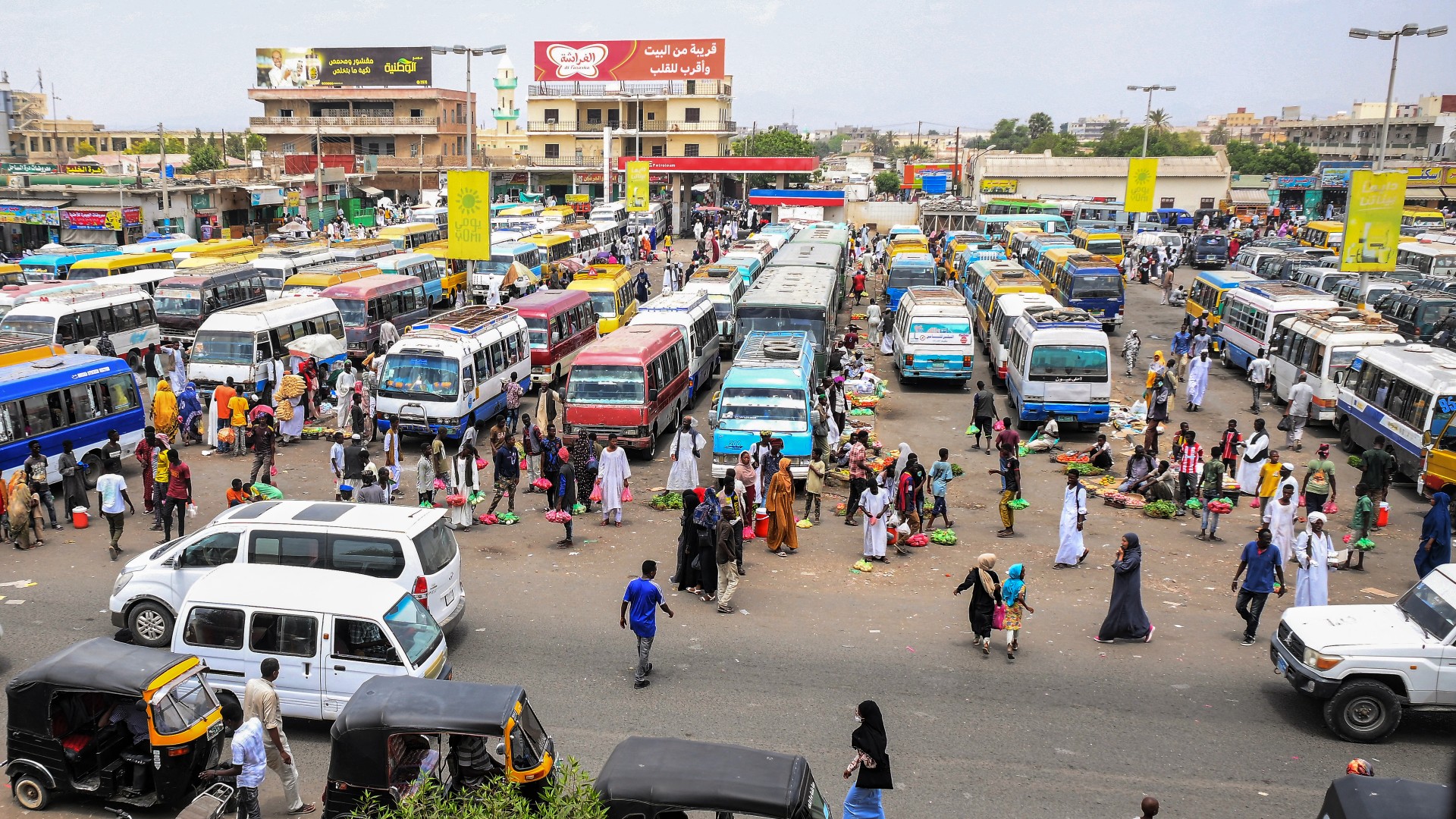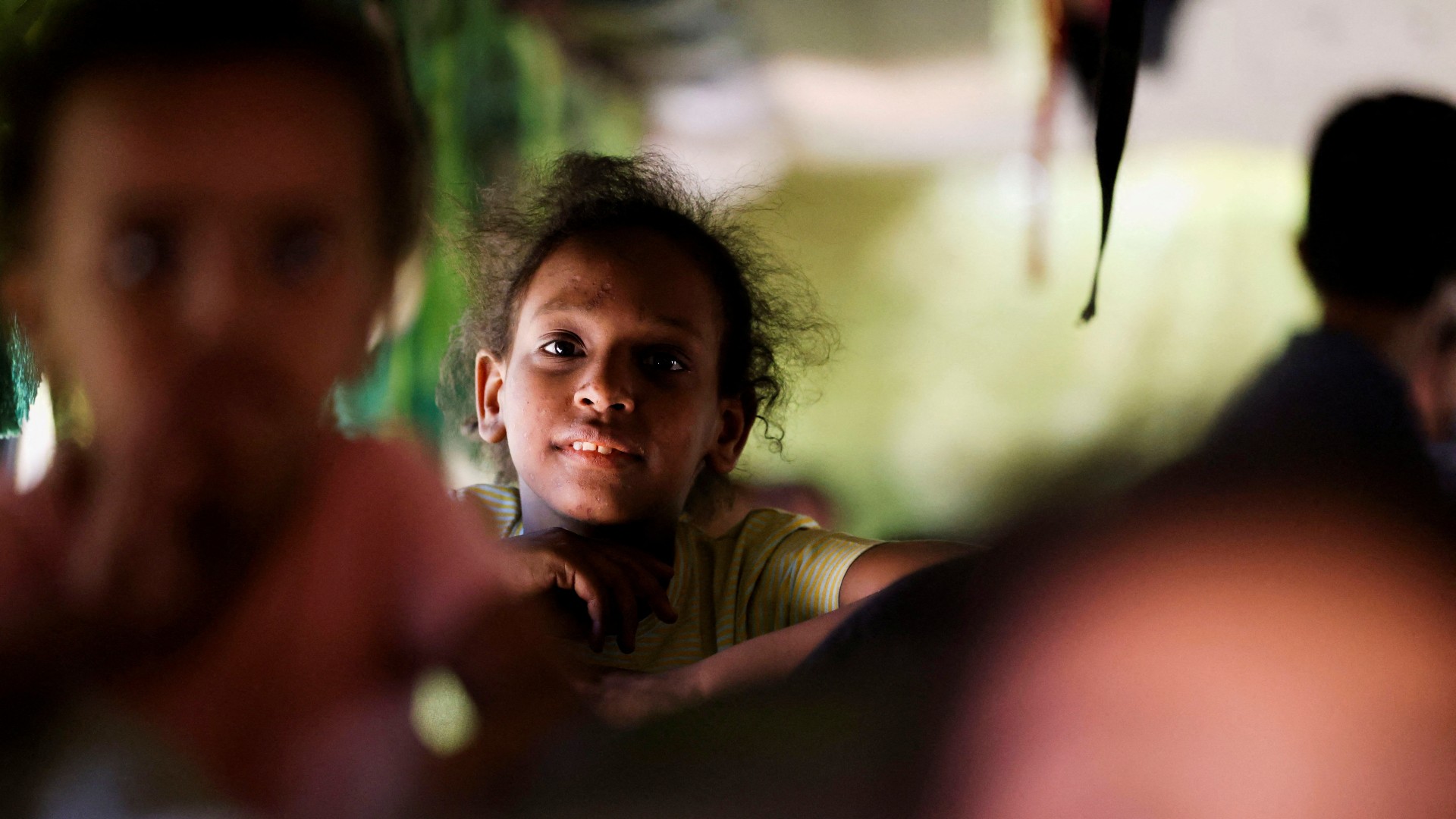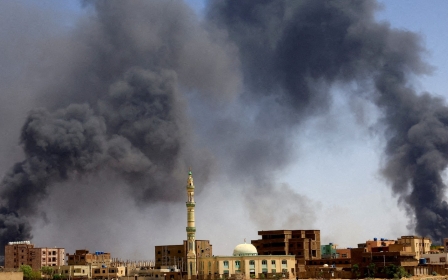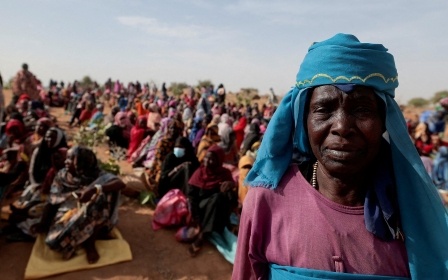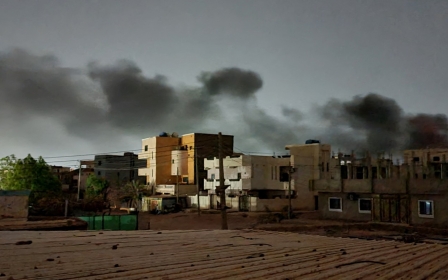Sudan crisis: On a bus through the country, survivors recount the horrors of war
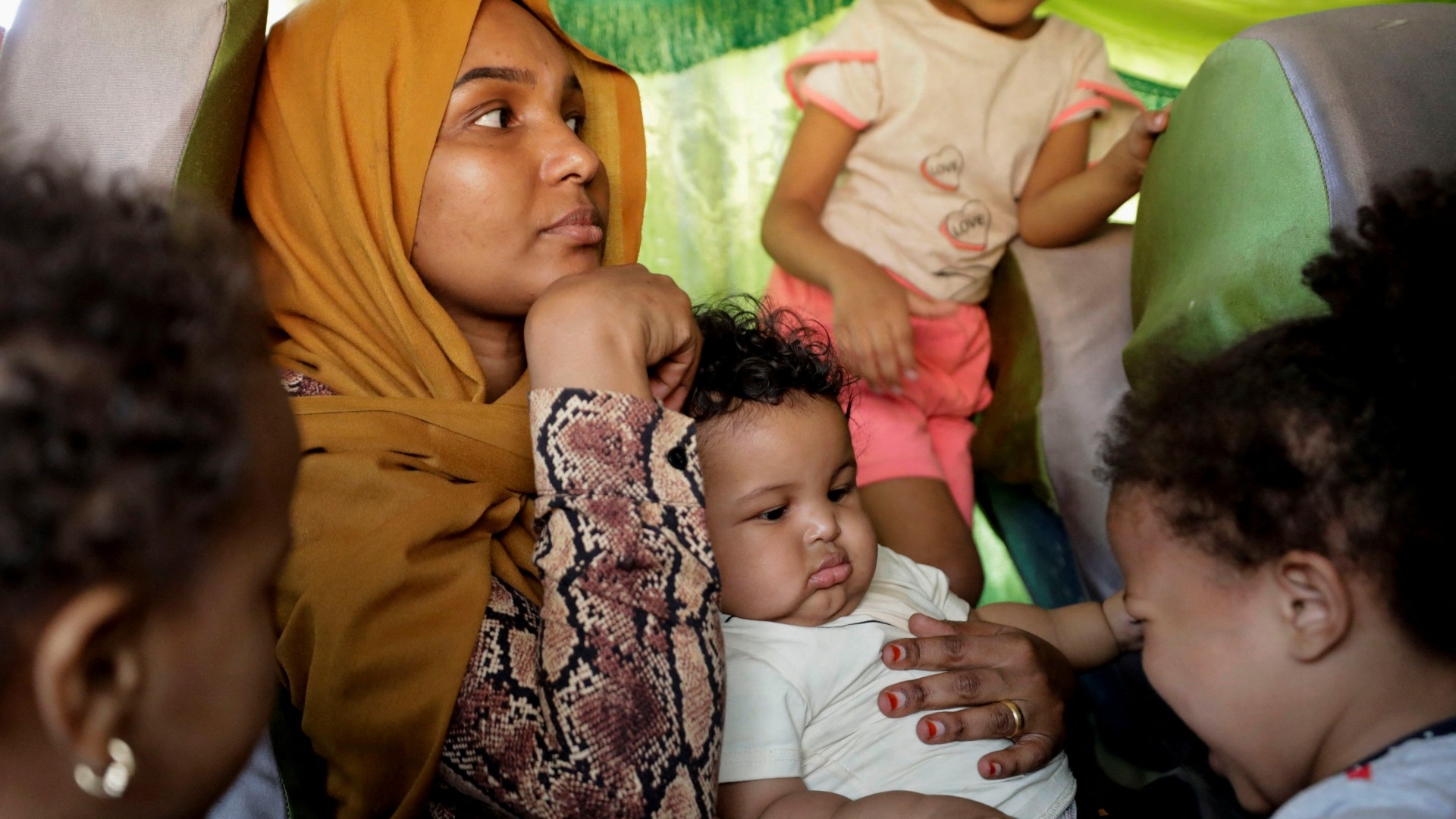
The old bus creaked as it dipped in and out of the decrepit road’s potholes. On one side, the flat, hot desert sands stretched as far as the horizon. On the other, the Red Sea Mountains rose in the distance. Dilapidated railway stations passed by every few kilometres.
Inside the bus were dozens of Sudanese travelling from Port Sudan to Atbara, recounting to one another the scenes of devastation they have fled and stories of a war that has no end in sight.
Every available space was filled with luggage and limbs, and over the rumble of the engine, tales of loss, looting and death tumbled out of people’s mouths.
Zuhair Osman, a thin 65-year-old man, sat in the middle of the bus. He and his family had fled their home in eastern Khartoum’s El-Mujahideen neighbourhood, a house Osman built after working for 20 years as an engineer in Bahrain.
A few days after leaving home, however, Osman’s family realised that in their hurry they had forgotten their IDs. Osman decided to go back to get them.
New MEE newsletter: Jerusalem Dispatch
Sign up to get the latest insights and analysis on Israel-Palestine, alongside Turkey Unpacked and other MEE newsletters
When he got there, Rapid Support Forces (RSF) paramilitary soldiers were cooking in his kitchen.
“It was shocking to see them there. They had smashed down the doors, entered all the rooms, looked through our cupboards and scattered our clothes all over the floor. The house was very dirty,” he recalled to fellow passengers.
Though nothing had been stolen, the place was a tip.
“When I came in, they stopped me aggressively. I told them that I’m the owner and want to take some belongings and they allowed me to get in,” Osman added.
“They didn’t talk to me much, but they were behaving like the real owners of the house, which enraged me. But the weapons they were carrying made me hide my anger until I could get out of the house.”
Since fighting erupted on 15 April - “the day of the nightmare” as the passengers around Osman describe it - no district of the Sudanese capital has been left unscarred.
Neighbourhood WhatsApp groups buzz with reports of RSF fighters looting homes. The more unfortunate have seen their buildings struck by Sudanese military air strikes.
And then there are worse tales: of killings, rape and other atrocities.
Conflict between the RSF and Sudanese army broke out when tensions over a plan to fold the paramilitary into the regular military turned into bitter violence. Since then, hundreds of people have been killed, mostly in Khartoum or Darfur in Sudan’s west. Meanwhile, more than 400,000 people have fled into neighbouring countries and another 1.2 million have been displaced internally.
Most on this bus blame the RSF for their woes. But there’s criticism, too, of General Abdel Fattah al-Burhan, head of the Sudanese army, who they said failed to expel the paramilitary from Khartoum despite pummelling homes and beloved landmarks with air strikes.
Urgent medical needs
The journey from Port Sudan to the Egyptian border is over a thousand kilometres long and can take several days.
Though the capital of Red Sea State has been an oasis of calm in the war, whispers of RSF agents infiltrating the city have raised tensions and encouraged some to seek passage to Egypt instead.
The first leg of the journey is to Atbara, a railway hub with a revolutionary history, and takes about seven hours. From there, weary passengers head north, to Dongola.
Around 50 people crammed into the bus out of Atbara, mostly families including children and the elderly.
Several are people in urgent need of medical care or medicines that can’t be accessed in war-wracked Sudan.
'A bomb fell on the building that I was living in, so we were trying to leave. But I didn’t notice that I had been shot in my leg'
- Rana Abdul Moniem, displaced Sudanese
Among them is Rana Abdul Moniem, who was shot in the leg two weeks into the war as the RSF and army battled in el-Imtidad, a neighbourhood in central Khartoum.
Though a doctor was able to perform a small operation on her leg, some small fragments of the bullet remain, and Abdul Moniem was advised to head to Egypt to have another operation.
Travelling with her two children and mother, the pain was clear to see on her face as a small child squirmed on her lap. Passengers in neighbouring seats offered help in sympathy.
“A bomb fell on the building that I was living in, so we were trying to leave. But I didn’t notice that I had been shot in my leg," Abdul Moniem told her fellow passengers. "A few minutes after we had taken the kids and got in the car to leave, I started feeling something painful, and we saw the bullet hole in my leg.”
The closest functioning hospital (just 14 out of Khartoum’s 74 hospitals are partially operating) was al-Saha, which was occupied by the RSF. Doctors asked the fighters to give Abdul Moniem access, and after several hours they agreed.
“Military vehicles surrounded the hospital and the soldiers were intense and aggressive. Inside I saw dozens of RSF soldiers wounded and getting treatment,” she said.
Chaos at the border
At Dongola, people change bus again. It’s easy to pick up a ticket to the Egyptian border, but prices are expensive: a journey that cost 15,000 Sudanese pounds before the war is now 80,000.
It takes four hours to get to the Argeen border crossing, a miserable sight. Thousands of Sudanese loiter without shelter in 40C heat.
There’s not a shop to be seen. No food, no water. Just grime and plastic waste, and money changers quoting desperate people exorbitant rates to exchange their Sudanese money for Egyptian pounds.
The process of getting a visa into Egypt is chaotic. Long lines snake out of each office. And to make matters worse, a cargo store caught fire, putting a halt to entries for a whole day.
Egypt says it has taken in 175,000 Sudanese since the war began. But not everyone makes it through. Ahmed Radwan and his family are now stuck in Argeen because they were denied entry visas to Egypt.
Elham Hussein’s family, meanwhile, has been divided: two of her sons were forced to stay in Port Sudan because the Egyptian consulate there hadn’t sorted their visa yet.
“We were forced to temporarily split, so I left my sons in Port Sudan while me, my husband and my two daughters are trying to cross the border now,” she said, sadly.
Middle East Eye delivers independent and unrivalled coverage and analysis of the Middle East, North Africa and beyond. To learn more about republishing this content and the associated fees, please fill out this form. More about MEE can be found here.


